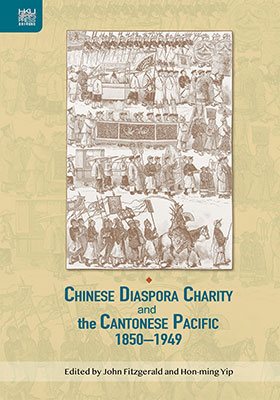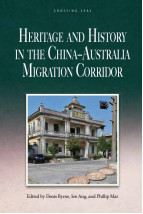Chinese Diaspora Charity and the Cantonese Pacific, 1850–1949
(華僑慈善與環太平洋區的廣東人世界 1850–1949)
ISBN : 978-988-8528-26-4
April 2020
236 pages, 7″ x 10″, 16 b&w illus. and 5 tables
- HK$550.00
Ebooks
Chinese Diaspora Charity and the Cantonese Pacific, 1850–1949 sheds new light on the history of charity among Chinese overseas and its place in the history of charity in China and in the wider history of global philanthropy. It finds that diaspora charity, besides serving traditional functions of helping the sick and destitute and supporting development in China, helped to build trust among dispersed hometown networks while challenging color boundaries in host societies by contributing to wider social causes. The book shows that charitable activities among the “Gold Rush” communities of the Pacific rim—a loosely integrated émigré network from Guangdong Province perhaps better known for its business acumen and hard work among English-speaking settler societies in North America and Australasia—also led the way with social innovations that helped to shape modern charity in China.
Fitzgerald and Yip’s volume demonstrates that charity lay at the heart of community life among Chinese communities overseas. From remittances accompanying letters to contributions to benevolent organizations, emigrants transferred funds in many different ways to meet urgent requirements such as disaster relief while also contributing to long-term initiatives like building schools or hospitals. By drawing attention to diaspora contributions to their host societies, the contributors correct a common misunderstanding of the historical Chinese diaspora which is often perceived by host communities as self-interested or disengaged. This important study also reappraises the value of charitable donations in the maintenance of networks, an essential feature of diaspora life across the Cantonese Pacific.
“Fitzgerald and Yip’s fascinating collection is a major contribution to the growing study of charity and its relationship to social welfare. The essays show how remittances were used for much more than family support. The book fills a large gap on the almost unrecognized importance of charity among Cantonese communities in the Chinese diaspora.” —Diana Lary, University of British Columbia
“This collection is a great contribution to our understanding of how important charity became among overseas Chinese in the early stages of the diaspora—between 1850 and 1949. Philanthropy was crucial in the creation of trust networks among the diasporic communities that earned Chinese recognition to the overseas communities both in China and in their host countries.” —Sue Fawn Chung, University of Nevada, Las Vegas




